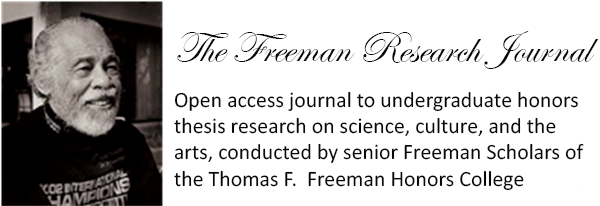
Date of Award
Spring 5-2021
Document Type
Thesis
Department
Visual and Performing Arts
First Advisor
Dianne Jemison Pollard
Abstract
The art of Theatre has been practiced for hundreds of years. It is an art form that merely imitates life. The actor is challenged mentally, physically, and emotionally in order to live truthfully under the imaginary circumstances given by the creator of the show/production that they are participating in. This requires one to flex a set of creative muscles that must be developed through constant training within the craft. Although excellent formal training would equip any Actor with the appropriate tools to excel within a performance, those tools don’t just apply to the stage. The tools given to one who trains in the Theatre are the same tools that can be used in every other facet of one's life outside of the Theatre. Theatre teaches discipline, dedication, cooperation, and builds confidence. In the early stages of Theatre, participation was exclusive to only men who were of age. Thankfully, as Theatre evolved over time, women were allowed to perform as well. In this thesis I will be talking about the impact and benefits of Theatre in regards to children. Considering all of the concepts Theatre teaches, children are most impressionable in regards to learning things because children are more emotionally malleable in comparison to adults. In this paper, I will be talking about the benefits of theatre and performing in regards to children and their development. Research shows that Theatre can be helpful in regards to enriching the social and emotional development of youth. According to the National Arts Council, “Students who have arts-rich experiences in school do better across the board academically, and they also become more active and engaged citizens , voting, volunteering, and generally participating at higher rates than their peers.” Artistic engagement has cognitive benefits within kids. The concept of role-playing helps children develop positive cognitive characteristics, specifically a strong sense of confidence. Ensemble group performances creates a sense of community amongst the children and teaches them to cooperatively work with others. Theatre improvisation games help kids with developing critical thinking skills considering the level of creativity and imagination they require. Within this paper, I will dive more into how theatre boosts kid’s confidence, teaches children the importance of teamwork, and how It also helps kids with developing critical thinking.
Recommended Citation
Hawkins, Ronson, "The Use of Drama to Help Children Build Confidence and Self Image" (2021). Honor’s College Freeman Research Journal. 21.
https://digitalscholarship.tsu.edu/frj/21


